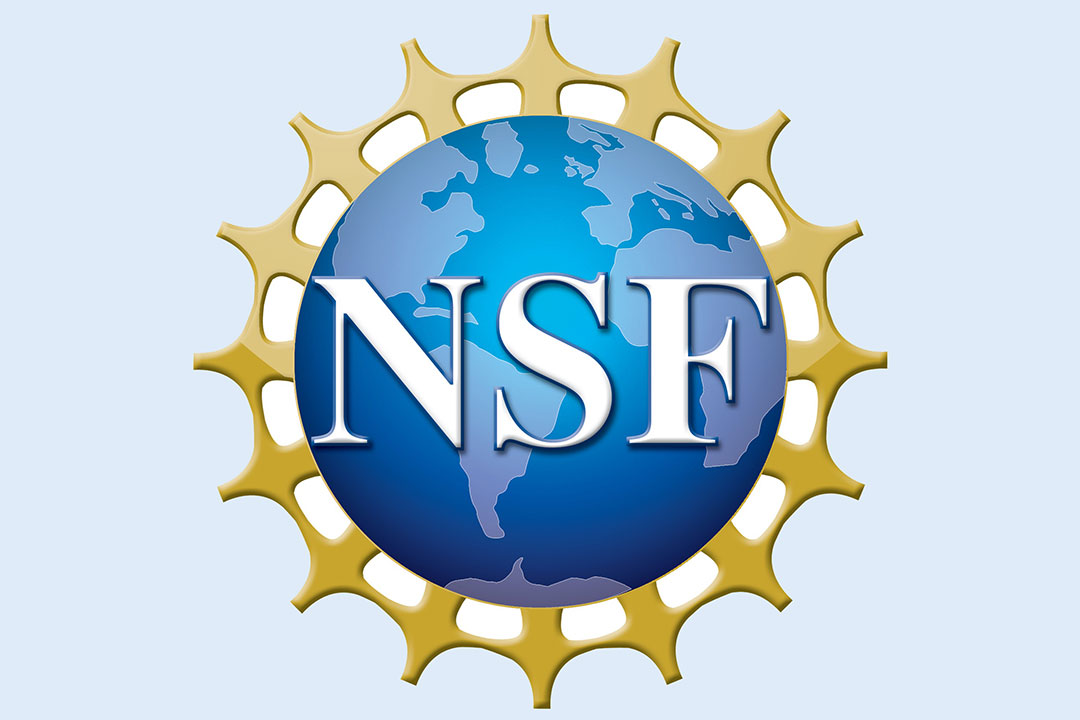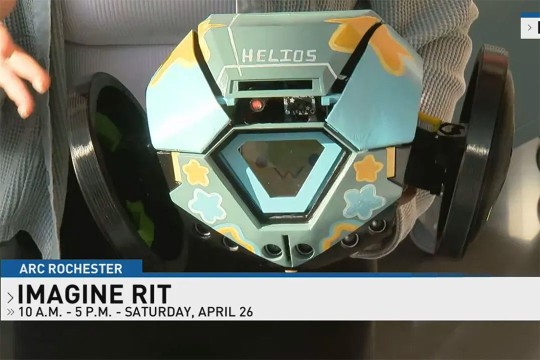NSF funds RIT project to help other colleges earn federal STEM grants
New workshops aim to expand STEM education for low-income students
In an effort to expand science, technology, engineering and math (STEM) education for all, Rochester Institute of Technology is developing a new program to help other colleges compete for federal government funding that supports programming for talented, low-income students.
The RIT project is being funded by a more than $370,000 grant from the National Science Foundation. With the funding, RIT will conduct a series of workshops and webinars to train faculty at 40 community and two-year colleges—which often lack support systems for STEM education—to develop programs and apply for grants that bolster their opportunities in this growing field.
“When I worked as a program officer with the NSF, we saw potential to grow programs with community colleges, but many do not have the support to write proposals that schools like RIT have,” said Paul Tymann, professor of computer science who is leading the project. “It’s critical to our national interests that we do whatever we can to grow the pipeline of students for STEM careers, and in particular to increase opportunities for low-income and disadvantaged students.”
Through the workshops, a network of experienced educators will guide faculty to become principal investigators who can prepare and submit more effective proposals to the NSF Scholarships in Science, Technology, Engineering, and Mathematics (S-STEM) program. The NSF S-STEM program supports the retention and graduation of high-achieving, low-income students with demonstrated financial need pursuing degrees in STEM disciplines.
The project indicates that many low-income students attend higher education institutions that don’t have robust STEM programs, including two-year colleges, teaching-intensive institutions and university branch campuses. The workshops will help faculty identify critical areas in which their students need support. They will also develop project plans that unite local institutional needs and opportunities with questions of broader interest to the STEM education community.
Faculty in the workshops will also learn to prepare programs that both support students and generate knowledge to advance the understanding of factors that affect the success, retention, transfer and graduation of low-income student in STEM.
Ultimately, the project’s aim is to help increase and enhance educational opportunity in STEM fields and ensure students pursuing these disciplines are career-ready.
“RIT has had a long history of partnering with community colleges to enable students to transfer seamlessly into the university, and this federal investment will enable us to further strengthen and expand these relationships, while at the same time helping to grow the workforce talent that is critically needed for our nation’s future,” said Tymann. “Initially, we are planning to target schools in the northeast region on this project.”
In addition to running the NSF project, Tymann is also helping lead RIT’s efforts in computing education for all as director of the Center for Computing Outreach, Research and Education (C-CORE).
RIT’s Golisano College of Computing and Information Sciences established C-CORE in 2017 to bring together projects that can change the way that computer science is introduced and spark an interest in computing for students from all disciplines, backgrounds and ages. Inspired by President Obama’s 2016 Computer Science for All initiative, the center shares in the goal of empowering students to learn computer science and equipping them with the computational thinking skills needed to be creators — not just consumers — in the digital economy.
“STEM careers are the future of our workforce. It is critical that we ensure all students have access to educational opportunities in these exciting fields,” said Congressman Joe Morelle. “RIT is a global leader in STEM education and I am pleased that this funding will allow them to share their expertise and partner with community colleges to encourage and expand offerings within these disciplines.”
For more information about the NSF project and C-CORE, contact Tymann at ptt@cs.rit.edu.












